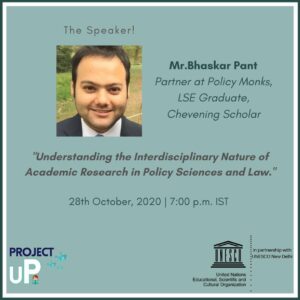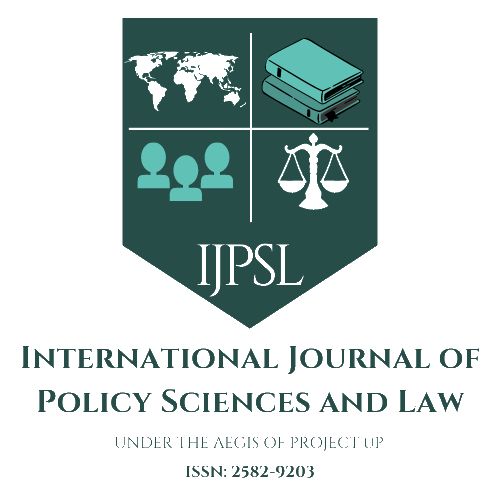Events
Webinar: Understanding the Interdisciplinary Nature of Academic Research in Policy Sciences and Law


The International Journal of Policy Sciences and Law initiated its dialogic activities for the first issue of the first volume with a conversational webinar with Mr. Bhaskar Pant- partner at PolicyMonks and a Chevening scholar who attended the London School of Economics and Political Science- on Wednesday, October 28, 2020. Incidentally, this was also the IJPSL’s opening event, which witnessed a participation of more than hundred scholars, academicians and policy enthusiasts- young and old, professors and students, seasoned and novice. In keeping with the IJPSL’s commitment to making scholarly writing and academic pursuits in the social sciences, in specific, more inclusive and accessible, the webinar delved into a dissection of the interdisciplinary nature of academic research in the policy sciences and law.
To hope to condense the entire content of the webinar in one report is gross injustice- for the webinar was too holistic and wide-ranging for that. Mr. Pant addressed a multitude of rudimentary aspects in the topic’s regard. He also introduced the audience to the relatively young idea of evidential, on-field policy-making, along with other trends in the field of policy making. Simultaneously, Mr. Pant stressed the need for specialisation in chosen sub-fields in policy work to deliver better. Locating a central question before initiating research is vital to conducive and valued policy-making.
Two key highlights were:
1. The importance of global perspectives in policy-making, as prominent in public policy post graduate programmes abroad;
2. The distinction between policy making and policy advocacy: to be involved in the former means to be involved with the government in policy research and consultancy.
A hoard of queries were answered in the question round. A major takeaway is that policy is constantly updated, so ideas must evolve quickly and in keeping with the tide of times too. More importantly, research is fluid- it cuts through situations and disciplines to answer one central question or problem area, making it truly inter-disciplinary in nature.
